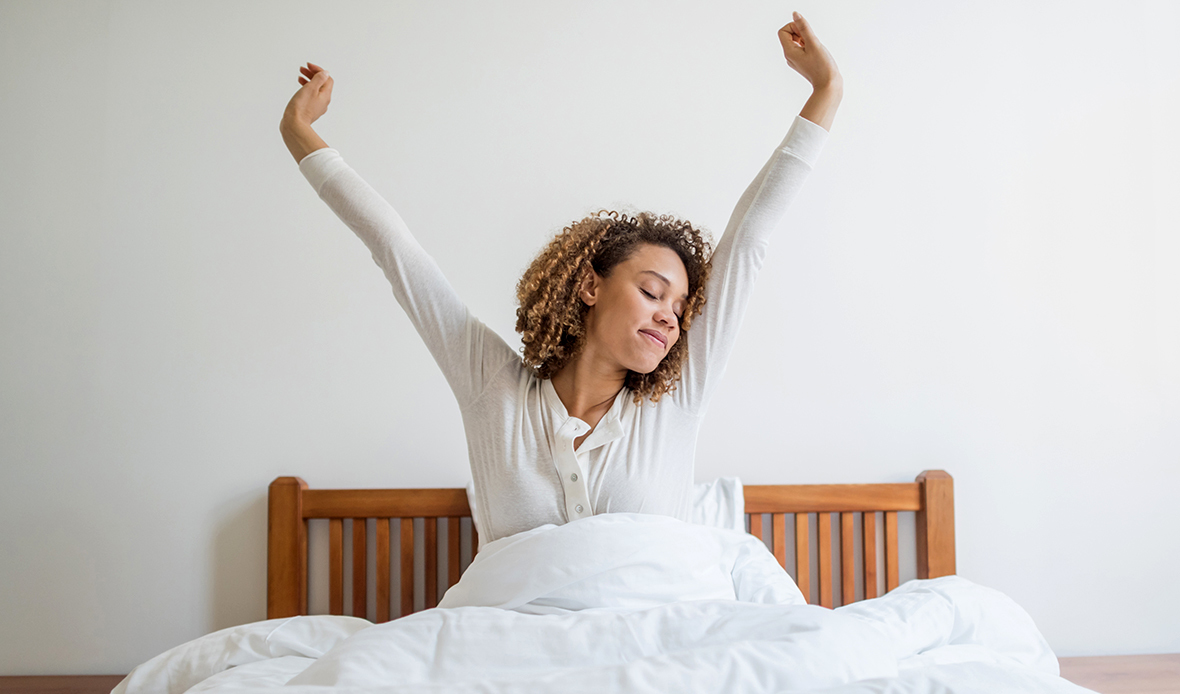
Having a drink before bedtime may sound like a good idea. After all, the name for this kind of drink—a nightcap—conjures the image of a cozy night’s rest. But alcohol, even in small amounts, can interfere with your sleep. In this article, you’ll see why—and learn how to minimize the negative effects of alcohol on your sleep.
We all know how we feel after a bad night’s sleep: sluggish, struggling to concentrate, and not quite ourselves. That’s because sleeping well is critical for our bodies to recover, repair, and grow. It’s also a time for our brains to learn, create, and develop memories.1
Getting high-quality, uninterrupted sleep is important. And the total amount of your sleep matters, too: seven to nine hours per night is a good goal for most people.2
Alcohol is a depressant—which slows your brain down—and a sedative, so it can help you fall asleep. But that doesn’t mean you’ll sleep well. Alcohol interrupts your body’s normal sleep cycle, which can affect your sleep in many ways.
As with so many things related to alcohol, moderation is key. If you are going to consume alcohol, here are some ways to reduce the impact it can have on your sleep:
If you’d like to learn more ways to improve your sleep, avoid alcohol-related medication interactions, and boost your overall well-being, a MOBE Guide or Pharmacist can help. Get started today.
References:
1. “Sleep, Learning, and Memory,” Harvard Medical School, http://healthysleep.med.harvard.edu/healthy/matters/benefits-of-sleep/learning-memory.
2. “How Much Sleep Do You Really Need?” National Sleep Foundation, https://www.thensf.org/how-many-hours-of-sleep-do-you-really-need/.
3. Michael D. Stein and Peter D. Friedman, “Disturbed Sleep and Its Relationship to Alcohol Use,” Substance Abuse 26, no. 1 (2006): 1–13, https://doi.org/10.1300/J465v26n01_01.
4. Evangelia Simou et al., “Alcohol and the Risk of Sleep Apnoea: A Systematic Review and Meta-Analysis,” Sleep Medicine 42, (February 2018): 38–46, https://doi.org/10.1016/j.sleep.2017.12.005.